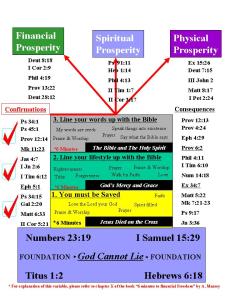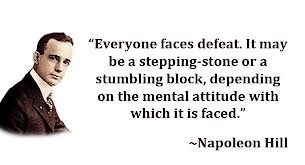This story came out on Yahoo about 2 years ago and I want you to read it and tell me if you believe it or not>>>
BEGIN ARTICLE>>>
How Birth Order Can Affect Your Job, Salary
by Ruth Mantell
It’s just not fair: Middle children are in a bad spot
Not only did your big brother steal your Halloween candy throughout childhood, but as an adult he probably makes more money than you, too, say recently released survey findings. As if years of retribution-free noogies weren’t sweet enough, it turns out that first-born kids are the most likely to earn six figures and hold a top executive position among workers with siblings, according to findings from jobs website CareerBuilder.com. Meanwhile, middle kids are the most likely to report holding an entry-level spot and earning less than $35,000, while siblings born last are the most likely to work in middle management.
“The first-born child is usually in a leadership role in the household and it continues into their career,” said Michael Erwin, senior career adviser at CareerBuilder.com. “The middle child tends to be more of the peacekeeper. The last born is more of the free spirit.” The CareerBuilder.com survey was conducted online between May 18 and June 8 among 5,708 full-time workers. Results also indicate that only children are more likely to earn six figures and to be a top executive, while workers with siblings are more likely to have job satisfaction. “You know how to work better with a team because you’ve had siblings. An only child is used to doing things on their own,” Erwin said. According to the CareerBuilder.com survey, depending on order of birth, individuals tend to be in certain types of work. Those who are born first usually go into the fields of government, information technology, engineering and science. Middle children often go into law enforcement, firefighting, construction, education, and personal care. Those born last frequently go into art/design/architecture, editing/writing, information technology and sales. Only children tend toward information technology, engineering, nursing and law enforcement.
Life Is Unfair
Firstborns, before their siblings arrive, benefit from more parental investment, such as time spent talking. “When a sibling comes along, one has a rival for that attention and one is going to experience an intellectual environment that is being diluted,” said Frank Sulloway, an adjunct professor in the psychology department at the University of California, Berkeley. Research indicates that earlier-born men and women have higher educational attainment and higher earnings. On average, the IQs of firstborns are about three points higher than secondborns, based on data for men, according to Sandra Black, an economics professor at the University of Texas, Austin. Just a few IQ points can have an outsized impact. “These are relatively modest differences, but that’s sometimes the difference between getting into Harvard or some other school, and who gets a better job. It’s totally unfair, but that’s the way it is,” Sulloway said. Small differences among different siblings can also mean that there are a disproportionate number of firstborns in challenging fields such as medicine and law, he said. When it comes to annual earnings for men, firstborns earn about 1.2% more than second children, and about 2.8% more than third children, according to Black. For women, firstborns earn about 4.2% more than secondborns, and about 6.6% more than thirdborns. For earnings, much of the difference due to birth order is explained by differences in educational attainment, Black said. “Birth order affects educational attainment, which then affects earnings,” Black said. “Laterborns earn less than firstborns, and a substantial part of this different is due to the fact that laterborns get fewer years of education.” However, not all is doom and gloom for those who aren’t the first-born child. “Earnings are determined by a lot of different factors. So laterborns should not give up,” Black said.
Birth Order and Personality
Birth order is not decisive when it comes to an individual’s life achievements, but personality is shaped by experiences, and individuals have different experiences due to birth order, said Ben Dattner, a NY-based organizational psychologist. “First-born siblings have an incentive to adapt to the family environment they were born into. There’s a niche in the family for the first-born sibling to be a culture carrier — an open slot for the position of good-family citizen,” Dattner said. “Second-born children are born into a family in which somebody has already occupied the position of good student, good kid, carrier of a parent’s values.” Younger siblings will try to find their own niche — an area that firstborns don’t already excel in, Sulloway said. “To be different, younger siblings will often try to find their own domain, something they are particularly good at, something that is different from an older sibling’s area of expertise,” Sulloway said. Later-born children tend to be more interested in foreign cultures and travel, and may be more likely to take risks, experts said. “First-born siblings are less likely to move far away from their parents because they have adapted into their family’s culture. But there are exceptions to every rule,” Dattner said. Who winds up drawing the shortest stick? It’s the middle kid who tends to get less attention than either firstborns or younger siblings. “Firstborns tend to receive more attention because they arrive first and receive 100% of parental attention until another sibling arrives. In addition, firstborns are older than their other siblings, generally assume a leadership role, and often serve as surrogate parents, assisting parents with child-rearing tasks, for which they derive certain rewards,” Sulloway said. “Lastborns tend to receive an undue share of parental attention because they are the most vulnerable sibling, and hence the most in need of continuing parental investment and care.”
END>>>
So even though there is some research do you believe these conclusions or not ?? Comments Please::






